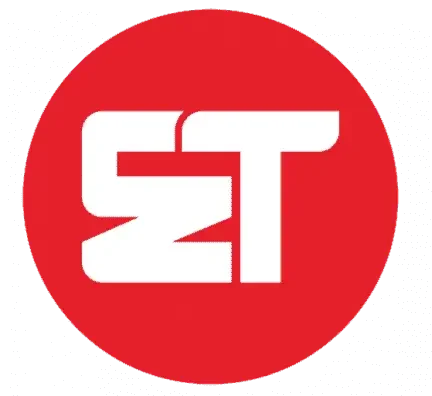Indonesia’s regulatory framework places significant emphasis on standardization as a cornerstone for protecting public health, consumer safety, and fair market competition. At the center of this system lies the Indonesian National Standard (Standar Nasional Indonesia – SNI), which serves as the primary benchmark for product quality, safety, and performance. The SNI is formulated and issued by the National Standardization Agency (Badan Standardisasi Nasional – BSN) in coordination with relevant stakeholders, drawing from both domestic priorities and internationally recognized standards.
However, it is crucial to understand that the existence of an SNI alone does not automatically impose a legal obligation on business actors. Under Indonesia’s sector-based regulatory structure, compliance obligations arise only when specific ministries or technical regulators such as the Ministry of Industry, the Ministry of Trade, the Ministry of Energy and Mineral Resources, or the Ministry of Health formally designate an SNI as mandatory through their technical regulations. This layered approach ensures that only products deemed critical for public interest, whether due to safety, environmental, or economic considerations, are subject to compulsory certification, while others may remain voluntary or outside the SNI regime entirely.
For both foreign principals and domestic companies, this distinction carries significant implications. Misinterpreting whether a product is subject to mandatory, voluntary, or non-applicable SNI can result in costly delays, rejected imports, administrative sanctions, or even reputational damage. Conversely, accurate classification not only facilitates smooth market entry but also enhances competitiveness, builds consumer trust, and aligns products with Indonesia’s long-term industrial and trade policies.
This article, therefore, provides a comprehensive guide to product classification under the SNI framework. It explains the categories of products subject to mandatory, voluntary, or excluded SNI requirements. Most importantly, it underscores why engaging professional advisory support is essential for navigating Indonesia’s highly regulated environment and ensuring full compliance when introducing products into the Indonesian market.

Read More: SNI for Baby Clothing and Children’s Toys in Indonesia
Legal Basis of SNI Obligations
The legal foundation of the Indonesian National Standard (SNI) is firmly established under Law No. 20 of 2014 on Standardization and Conformity Assessment and further elaborated through Government Regulation No. 34 of 2018 on the National Standardization and Conformity Assessment System. Together, these provisions confirm that SNI compliance in Indonesia follows a sector-based mandate rather than a universal obligation. In practice, this means that SNI only becomes mandatory when expressly stipulated by the competent sectoral ministry or regulatory authority. For example:
- The Ministry of Industry may designate mandatory SNI for construction materials, steel, plastics, and consumer goods critical to safety.
- The Ministry of Trade imposes mandatory SNI for selected imported goods as part of trade policy and consumer protection.
- The Ministry of Health regulates household health supplies (PKRT) and certain medical products.
- The Ministry of Agriculture oversees SNI requirements related to fertilizers, animal feed, and agricultural inputs.
- The Ministry of Energy and Mineral Resources (ESDM) applies SNI obligations to energy-related products, such as fuel, lubricants, and electrical equipment.
Accordingly, not every product listed in the SNI catalogue automatically requires certification. Instead, business actors must carefully review the latest ministerial regulations, technical decrees, and HS Code classifications to confirm whether their products are subject to mandatory SNI before entering the Indonesian market.
Failure to comply with mandatory SNI obligations may result in administrative sanctions, including revocation of licenses, prohibition of importation or distribution, product recalls, and potential reputational harm. Conversely, voluntary SNI compliance, even when not mandated, often provides strategic advantages, enhancing product credibility, strengthening consumer trust, and supporting competitiveness in Indonesia’s highly regulated business environment.
For foreign principals, the complexity is even greater, as Indonesian law requires that SNI certification be applied for and held by a local legal entity (importer, distributor, or subsidiary). This makes the role of a Local Partner Distributor (LPD) or Import of Record (IOR) especially critical in ensuring compliance with SNI obligations and securing smooth entry into the Indonesian market.

Read More: Deepdive into ISO 9001:2015 and Its Correlation with SNI
Product Categories Under the SNI Framework
- Products Subject to Mandatory SNI
Products that have been officially designated as subject to mandatory SNI certification cannot be lawfully imported, manufactured, or distributed in Indonesia without first securing a valid SNI certificate. This obligation typically applies to high-risk categories of goods directly connected to public health, consumer safety, environmental sustainability, and national economic priorities. Some common examples include:- Construction materials such as cement, steel bars, pipes, and tiles, where quality control is critical to public safety and national infrastructure.
- Electrical and electronic equipment, including cables, switches, lamps, and household appliances, to reduce risks of fire, electric shock, and energy inefficiency.
- Children’s products and toys, where compliance with SNI ensures that products are free from harmful chemicals, choking hazards, and meet mechanical safety standards.
- Food-related products, such as bottled drinking water and certain packaging materials, where certification ensures hygiene, durability, and compliance with health standards.
- Automotive components, including tires, helmets, and seat belts, are used to safeguard driver and passenger safety on Indonesian roads.Certification for mandatory SNI is carried out through an accredited Product Certification Body (Lembaga Sertifikasi Produk/LSPro) recognized by the National Accreditation Committee (Komite Akreditasi Nasional – KAN). Depending on the product’s classification, the conformity assessment may follow different schemes:
- Type 1 (Batch Certification) – Applied to one-time, project-based consignments where goods are imported or manufactured in limited quantity.
- Type 3 (Recurrent Testing) – Requires initial testing plus periodic re-testing of product samples taken from the factory or the market. This is often used for goods that are produced regularly but not considered high-risk.
- Type 5 (Comprehensive Certification) – Includes laboratory testing, factory audits of the quality management system (often linked to ISO 9001), and ongoing surveillance. This is typically applied to mass-produced or high-risk products, such as electrical appliances and automotive components.Non-compliance with mandatory SNI obligations carries serious legal and commercial consequences. Import clearance may be denied, shipments could be held or re-exported at the importer’s expense, and products already circulating in the market may be subject to recall orders or destruction. In addition, companies may face administrative sanctions, suspension or revocation of their Business Identification Number (NIB), and reputational damage that can undermine long-term market opportunities.For foreign businesses, the challenge is even greater because SNI certificates cannot be issued directly under a foreign entity’s name. Instead, they must be applied through a local partner or distributor, who will hold the certificate and assume legal responsibility for compliance. This makes due diligence in selecting a Local Partner Distributor (LPD) absolutely essential to mitigate risks of mismanagement, delays, or non-compliance.
- Products Eligible for Voluntary SNI
Not all products circulating in the Indonesian market are legally bound to comply with the Indonesian National Standard (SNI). Products that are not designated as mandatory in ministerial annexes or technical regulations may still undergo voluntary certification, provided that an accredited Product Certification Body (Lembaga Sertifikasi Produk/LSPro) has the relevant testing and certification scope.Although voluntary SNI certification is not a legal obligation, it carries significant strategic advantages for both local and foreign businesses:- Enhanced Consumer Trust and Brand Reputation
The display of the SNI mark on product packaging signals that the product has undergone rigorous testing and complies with Indonesian quality standards. For consumers who are increasingly concerned about safety and reliability, this certification provides an additional layer of assurance and can differentiate products in a competitive market. - Improved Market Competitiveness
Many modern retail chains, distributors, and e-commerce platforms in Indonesia require or prefer SNI-certified products, even where certification is voluntary. Businesses that pursue voluntary SNI often gain faster access to premium distribution channels compared to uncertified competitors. - Eligibility for Government Procurement
Certain governments’ tenders and procurement projects prioritize or mandate products with SNI certification, even when not legally required. This makes voluntary SNI a powerful tool for companies seeking to participate in public sector contracts. - Alignment with International Standards
By obtaining voluntary SNI certification, businesses demonstrate alignment with ISO-based conformity systems and globally recognized benchmarks. This facilitates smoother cross-border trade, reduces the risk of technical barriers, and enhances a company’s export and regional expansion potential. - Risk Mitigation Against Future Regulation
Indonesia frequently updates its technical regulations, and products that are currently voluntary may later become subject to mandatory SNI. Companies that proactively obtain voluntary certification are better positioned to adapt quickly when regulations change, avoiding costly delays and compliance risks.
- Enhanced Consumer Trust and Brand Reputation

Read More: Understanding ISO
How to Pursue Voluntary SNI Certification
Businesses interested in pursuing voluntary certification are advised to consult the official National Accreditation Committee (Komite Akreditasi Nasional/KAN) portal at www.kan.or.id. Through the Directory of Accredited Conformity Assessment Bodies, companies can:
- Navigate to the “Direktori LPK” section.
- Select the “Terakreditasi” tab.
- Filter under “Lembaga Sertifikasi Produk berdasarkan SNI ISO/IEC 17065”.
- Enter the product category (e.g., “glass bottle”, “cables”, “toys”) to identify LSPro institutions authorized to certify that specific product.
Once a relevant LSPro is identified, businesses may request a quotation for certification outlining the scope of testing, audit requirements, estimated timeline, and cost components. By obtaining voluntary SNI certification, companies not only strengthen their compliance profile but also secure a competitive advantage in Indonesia’s increasingly quality-driven market.
Conclusion
Navigating Indonesia’s national standardization framework requires not only a clear understanding of whether a product falls under mandatory, voluntary, or non-applicable SNI classification, but also a proactive strategy to ensure compliance. While mandatory SNI serves as a legal prerequisite for high-risk and regulated goods, voluntary SNI offers significant strategic advantages, enhancing consumer trust, unlocking premium distribution channels, and safeguarding against future regulatory shifts. Conversely, products outside the SNI regime remain subject to alternative certification requirements, underscoring the importance of comprehensive due diligence.
For both local businesses and foreign principals, missteps in product classification or certification can result in delayed market entry, shipment rejection, or legal sanctions. By contrast, accurate classification and timely compliance not only ensure regulatory certainty but also provide a competitive edge in Indonesia’s increasingly quality-driven marketplace.
At ET Consultant, we specialize in guiding both domestic and foreign businesses through the complexities of Indonesia’s regulatory framework. From determining your product’s SNI classification to coordinating with accredited certification bodies, we provide end-to-end compliance solutions tailored to your business needs.
***
ET Consultant is a Business Consultant and Legal Consultant Expert that provides support for local and multinational clients to start and manage their business operations in Indonesia. ET Consultant specializes in Business Incorporation, Licensing & Legal, Accounting & Taxes, Immigration, and Advisory Services.
Ready to find out more?
Excellent and Trusted Consultant (ET Consultant)
PPHUI Building Lantai 2 suite 210 Jl. H.R. Rasuna Said Kav. C-22 Kuningan
Jakarta Selatan, 12940 Indonesia.
Tlp : 021 5290 7039
Email : [email protected]


